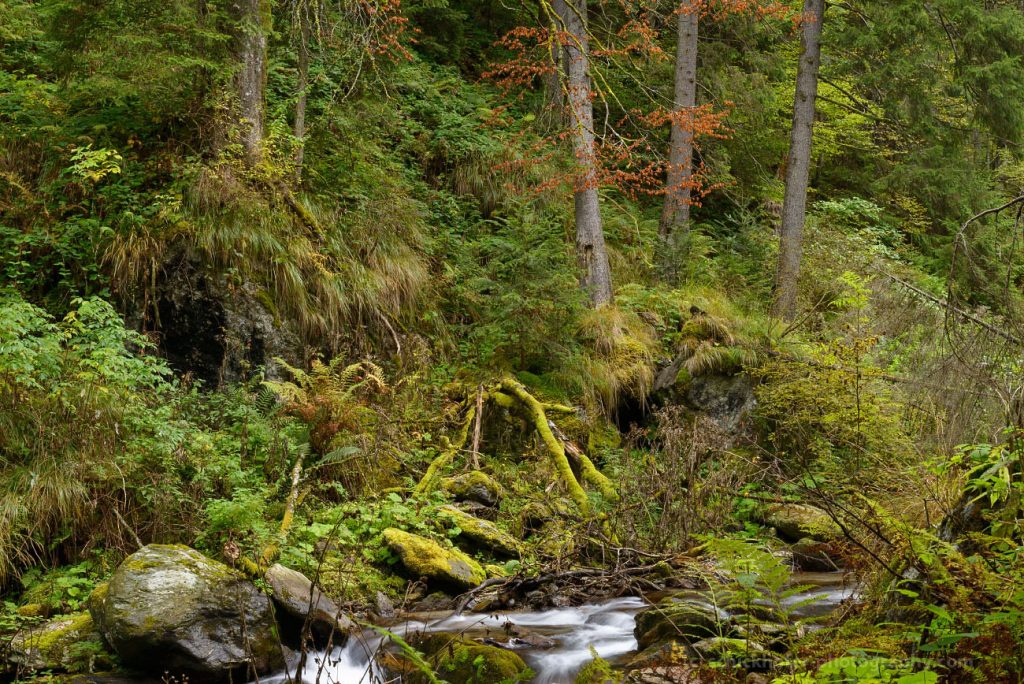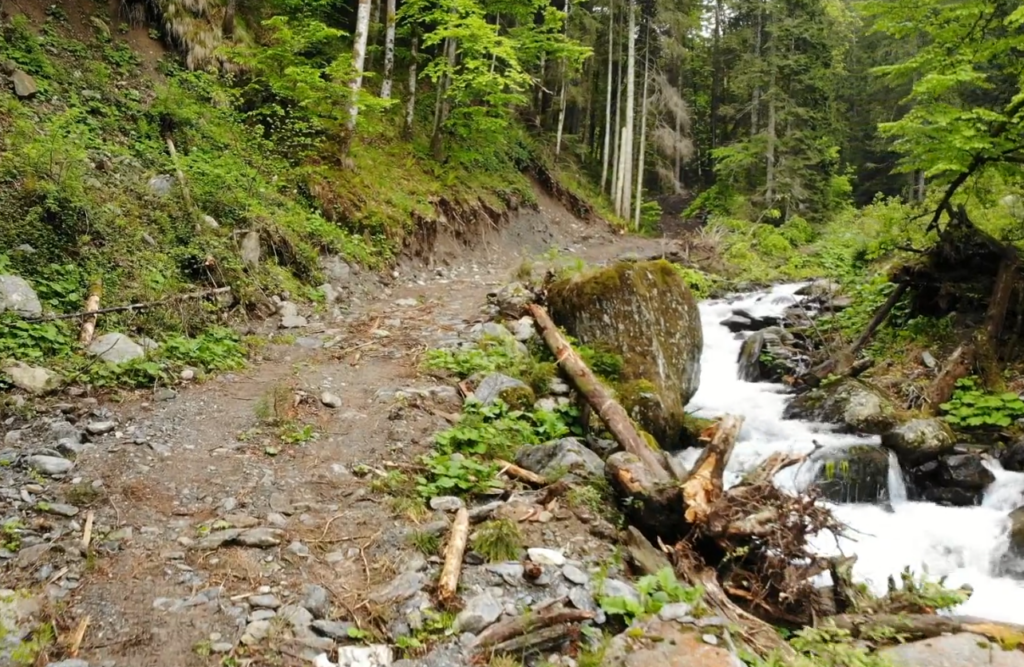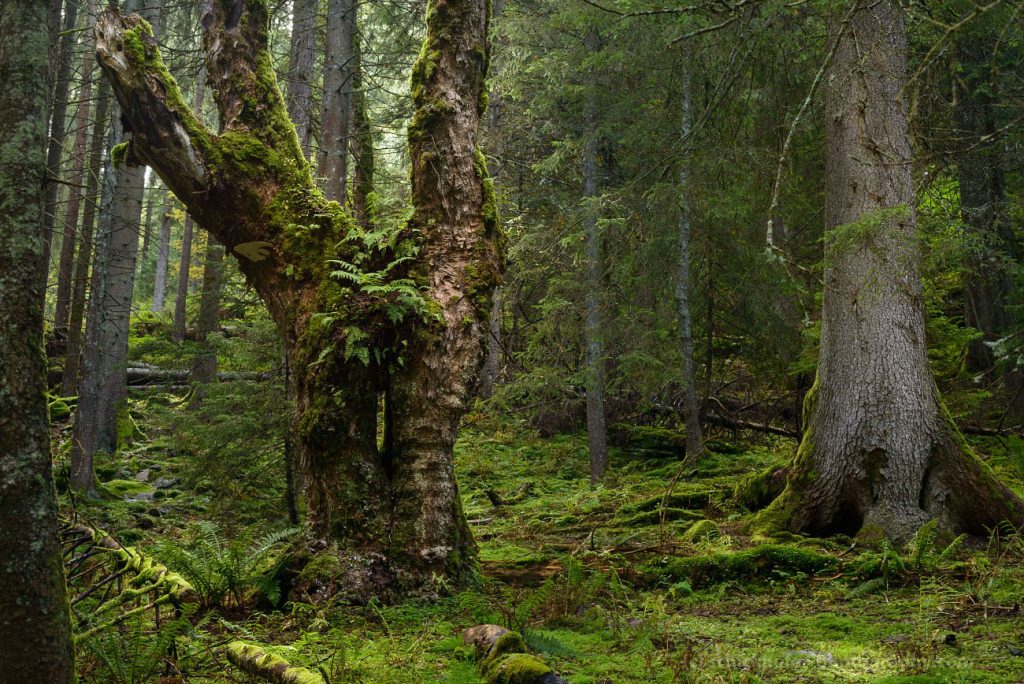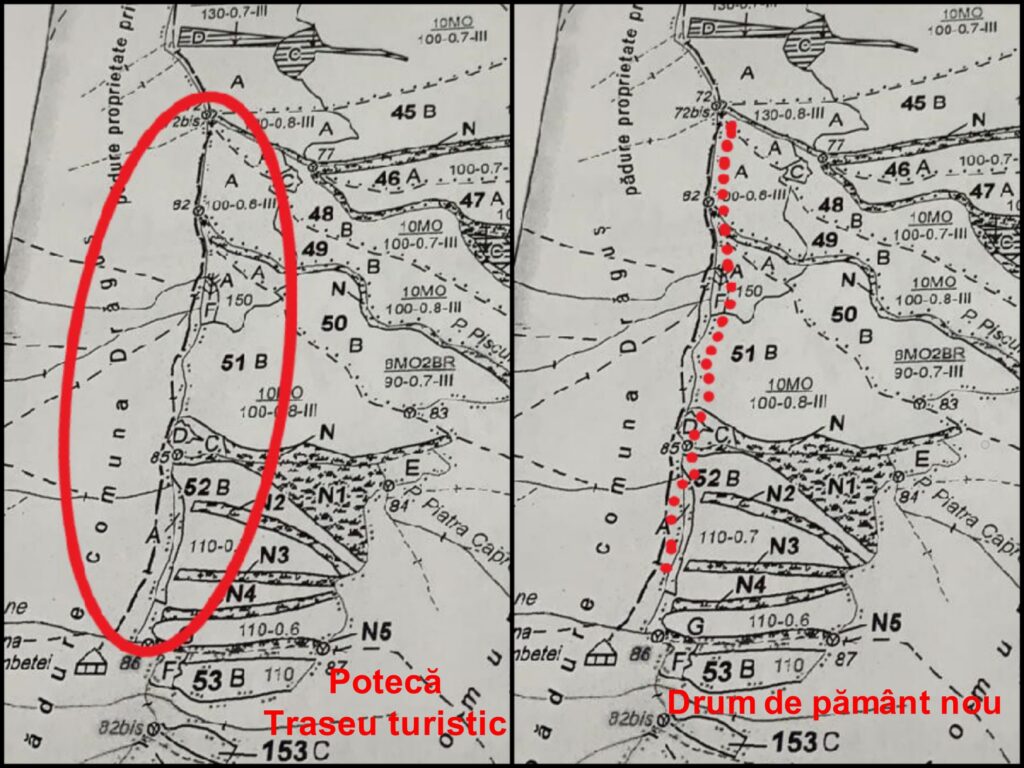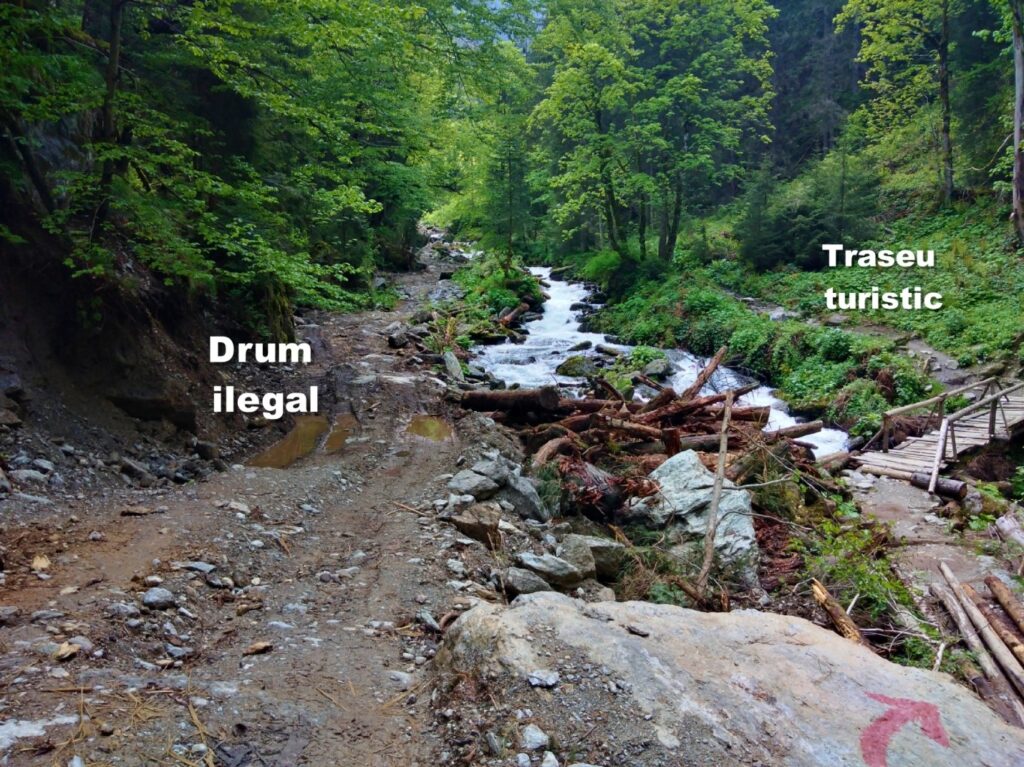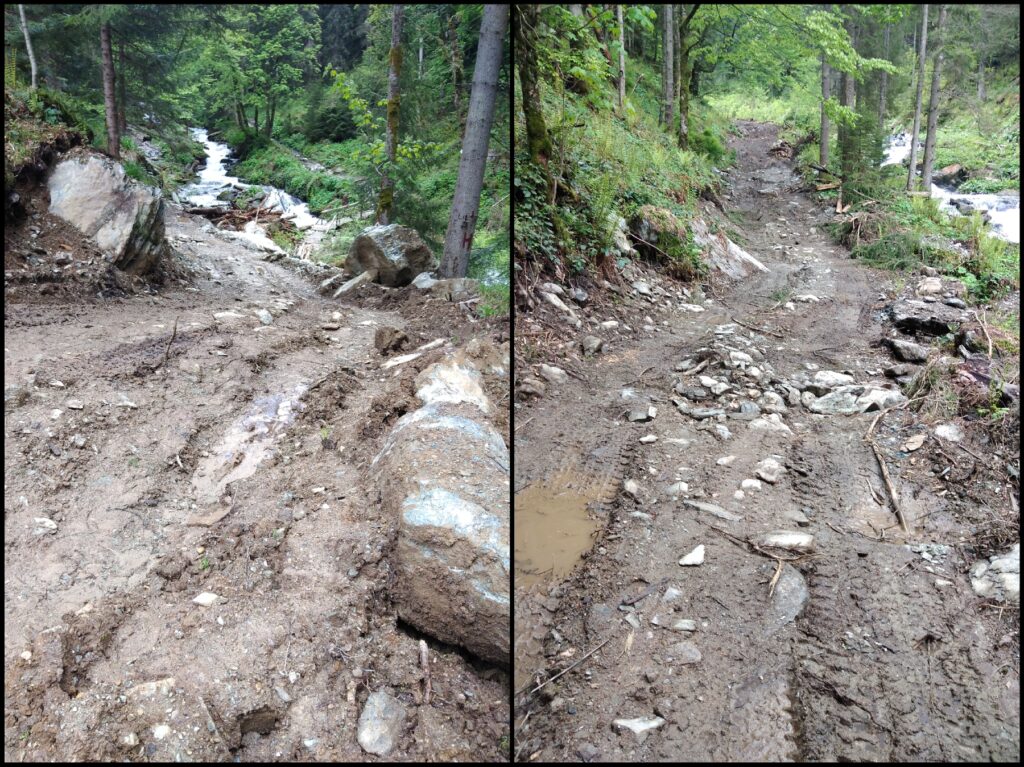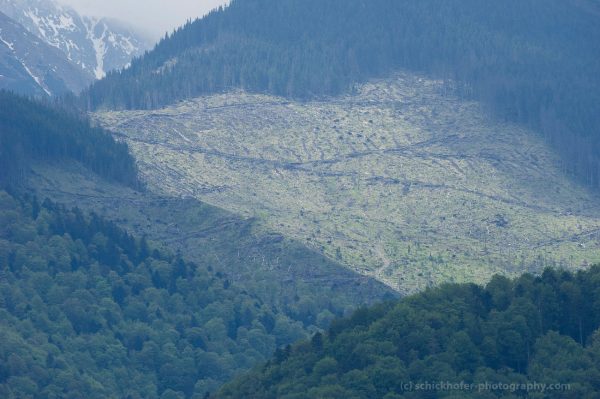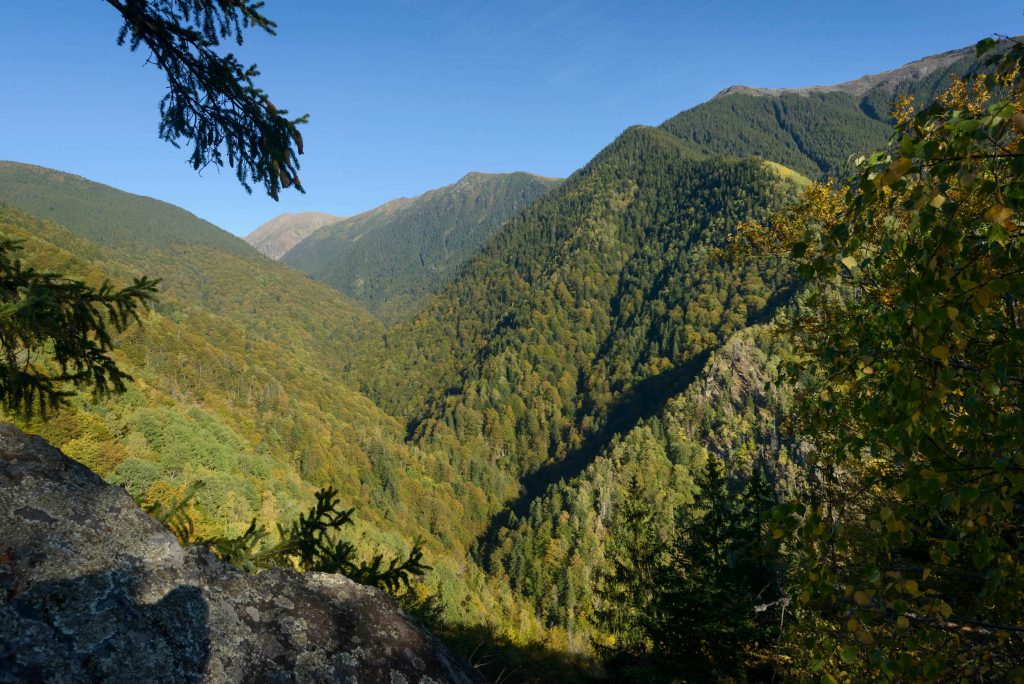Illegal road cut into the pristine Sâmbăta Valley in Romania’s Făgăraș Montains Natura 2000 site
A few weeks ago, the Sâmbăta Valley (Sibiu province) was still a true paradise: the valley was not spoiled by any road and hosts vast old growth forests, remote mountain ridges, rare wild animals (including wolves, bears and otters) and a romantic hiking trail that passes under large, mossy, ancient trees. But a few weeks ago, this sanctuary has been despoiled: a local forest owner bulldozed a road along the once pristine river, destroying the banks and slopes covered with wild and biodiversity-rich ravine and mountain forests.
But this is just the beginning. Logging machinery are soon expected to invade the valley, now that they have access to the large old trees that have been growing here for centuries. And the fairytale forest, which is reminiscent of film scenes from “Lord of the Rings” could soon be ravaged. Tragically, Sâmbăta is not the only wild valley in Romania that has suffered from illegal logging during the COVID-19 lock down.
Local environmentalists discovered the new road and called for immediate inspection by officials from the Forest Guard authorities in Brasov. The response caused great concern and shock: no permits are required because an old road already existed that “was only being repaired”. This outrageous claim clearly contradicts the facts: pictures from previous years show that no road actually existed and that the valley was an untouched wilderness, hosting old-growth forest of sycamore, beech and spruce. Forest maps also confirm that the valley was not accessible by a road.
Questions of serious mismanagement are raised.
Why are forest guard officials defending this unauthorized road and why are they covering for the unknown beneficiary who drove this illegal project forward?
How could this happen during the very time when the EU Commission has initiated infringement proceedings against the Romanian state for deliberate, systemic and widespread violations of EU legislation by systemic logging and destruction of natural ecosystems in Natura 2000 sites?
Natura 2000 requires mandatory environmental assessments to be carried out prior to intervention in protected areas in order to exclude the risk of a deterioration of the ecological conservation status of listed habitats and species.
The facts, known to date, are:
- The new dirt road stretches for about 1.5 km, is 3-4 m wide and was built between March and May 2020.
- The road is in a Natura 2000 site
- The road does not have a valid building permit
- No adequate environmental assessment has taken place
- No agreement or approval has been given by the Natura 2000 site custodian for works in protected habitats
- The road has not been approved by the Romanian Forest Guard for cutting in areas mapped as “virgin forests” by the “Pin Matra study”
- The road has not been approved by the Ministry of Environment for forest works in areas officially proposed for inclusion studies in the protection system of the “National Catalog of Virgin and Quasi-virgin forests”.
This is a long list of evidence showing clear violations of laws, rules and regulations that were supposed to ensure the permanent protection of such precious forests.
The work was carried out without an information panel, under the pretext of “rehabilitating a dirt road” that never existed on the left bank of the Sâmbăta river in a formerly roadless, wild valley. Only the touristic path that leads to mountain refuge Cabana Sâmbăta and which is located on the right bank of the river Sâmbăta appears on the forest maps.
The valley harbors large tracks of old growth forests with high biodiversity and scientific values (researched by the REMOTE Primary Forests project).
According to the NGO Agent Green, this is the list of potential illegalities:
- Unauthorised construction of a dirt road without proper building permit
- Unauthorised construction of a road without a proper environmental assessment
- Unauthorised construction of a road without consent of the Custodian of a Natura 2000 site
- Illegal change of land use category, from forest to road
- Disturbing the national forest fund and protected species by carrying out the illegal construction of the road
- Unauthorised construction of a road in forest stands identified by the “Pin Matra” study as virgin forests
- Unauthorised road construction damaging Natura 2000 protected habitats and species, ignoring the legal obligation of carrying out a (nature impact) appropriate assessment prior to any intervention
- Unauthorised road construction through the Sâmbăta riverbed and other tributary watercourses
- Destruction of the soil and dislocation of rocks on the edge of watercourses and in the forest
- Abandonment of felled trees in streams
- Unauthorised logging of trees in Natura 2000 priority habitats, in Pin Matra polygons and in potentially virgin forests included in the official list of the Ministry of Environment
- Damaging the status of protected species and habitats
In the context of the EU infringement procedure against Romania for forest exploitation in protected habitats without adequate appropriate assessment, it is very worrying that the new road was even built through potential “priority habitats” which are under strict protection in the whole of the EU – in particular:
91E0 * – Alluvial forests with Alnus glutinosa and Fraxinus excelsior – Alno-Padion, Alnion incanae, Salicion albae
9180 * – Tilio-Acerion forests on steep slopes, rubble and ravines
Furthermore, the illegal road was built directly through the habitats of several protected species for which the Natura 2000 site was designated, such as the wolf and the otter, and the fact that the road affected the course of the river Sambata and will have had a negative impact on fish species found in this river, such as Cottus gobio.
Agent Green will file complaints against this illegal road, stating that the Environmental Guard, Romanian Waters and the National Agency for Protected Natural Areas have a direct responsibility to investigate and prosecute these clear violations of the law and to force those who built the road to restore the affected area to its original state.
This scandalous contemporary example of clear contempt for nature and the law underscores the urgent need for EU intervention, as Romanian authorities are not able, and seemingly unwilling to fight such environmental crimes.
Here is a video by Agent Green showing the extent of the destruction:
